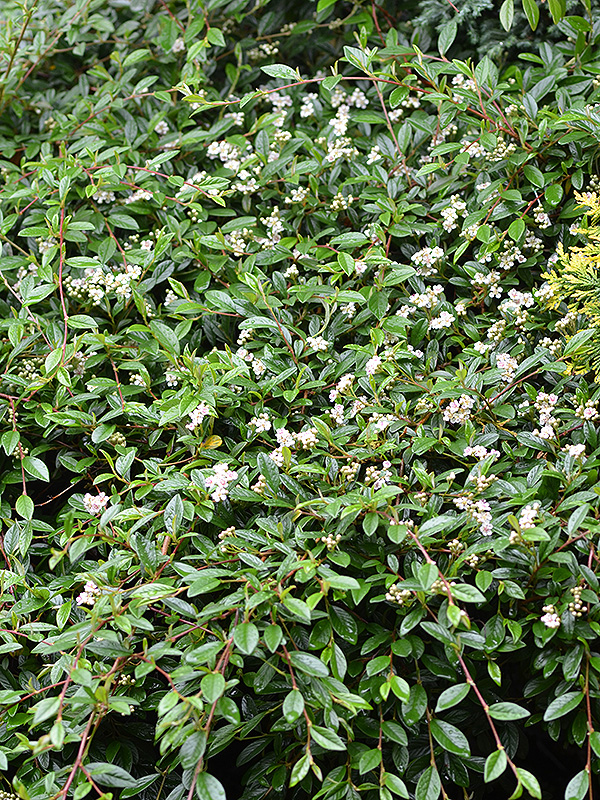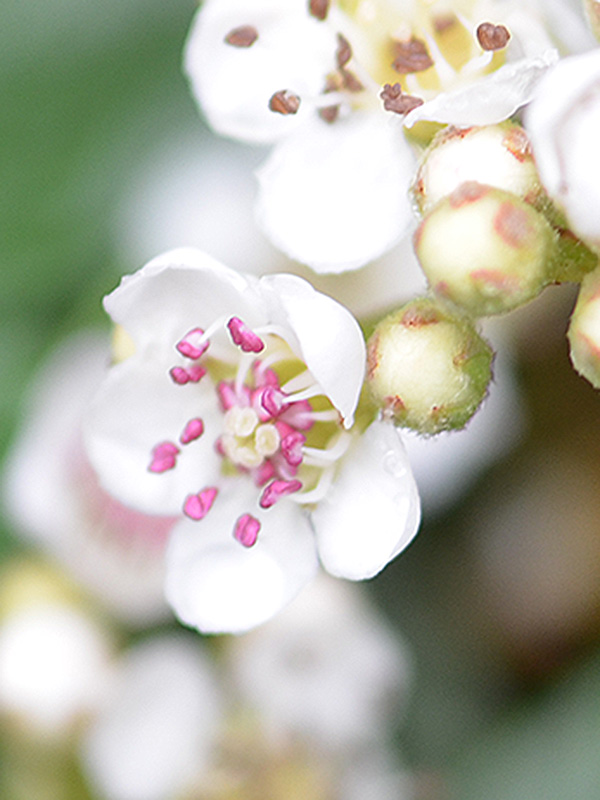
Woody > Cotoneaster > Cotoneaster salicifolius > Cotoneaster salicifolius
Cotoneaster salicifolius
Willowleaf Cotoneaster
Origin: Western Sichuan, China; introduced in 1908.
| Family |
| Rosaceae |
| Genus |
| Cotoneaster |
| Species |
| salicifolius |
| Category |
| Woody |
| Type |
| Shrub (evergreen) |
| Pronunciation |
| USDA Hardiness Zone |
| 6 - 7 |
| Canadian Hardiness Zone |
| 5 |
| RHS Hardiness Zone |
| H7 |
| Height |
| 50 cm |
| Spread |
| 1 - 2 m |
Photographs
Description and Growing Information
Flowering Period
| General Description |
| Large evergreen shrub with a spreading, arching habit. It will become leggy at its base unless pruned. |
| Landscape |
| Large evergreen shrub valued for its fruit especially in European gardens; perhaps more important as a parent (breeding) in some of the larger fruited ground cover types. |
| Shape |
| Low and spreading. |
| Growth |
| Fast |
| ID Characteristic |
| Distinctive glossy narrow leaves, wooly white beneath on slender drooping stems. Produces a profusion of small red berries. |
| Pests |
| Chance of fireblight infestations and occasional winter burn. |
| Habitat |
| Found growing in scrub at 2600 - 3000 m. |
| Leaf Description |
| Leaves are oval-oblong to ovate-lanceolate, 3.5 - 8.5 cm long and are a lustrous dark green, rugose and glabrous above and grey tomentose below. |
| Flower Description |
| Flowers are individual, small, white, rose like, generally sticky and borne in woolly 5 cm diameter clusters. |
| Fruit Description |
| Fruit is bright red with 2 - 3 nutlets, which often persist through the winter months. Fruiting in July. |
| Colour Description |
| Leaves are a lustrous dark green during the growing season, which tend to change to plum purple during the winter months. Flowers are white, while the fruit is bright red. |
| Texture Description |
| Medium through the seasons. |
| Notable Specimens |
| Royal Botanical Gardens, Burlington, Ontario, Canada. The Fanshawe College Botanical Gardens, London, Ontario, Canada. |
| Propagation |
| Best in moist, well-drained, acidic soil and in sun or partial shade. |


